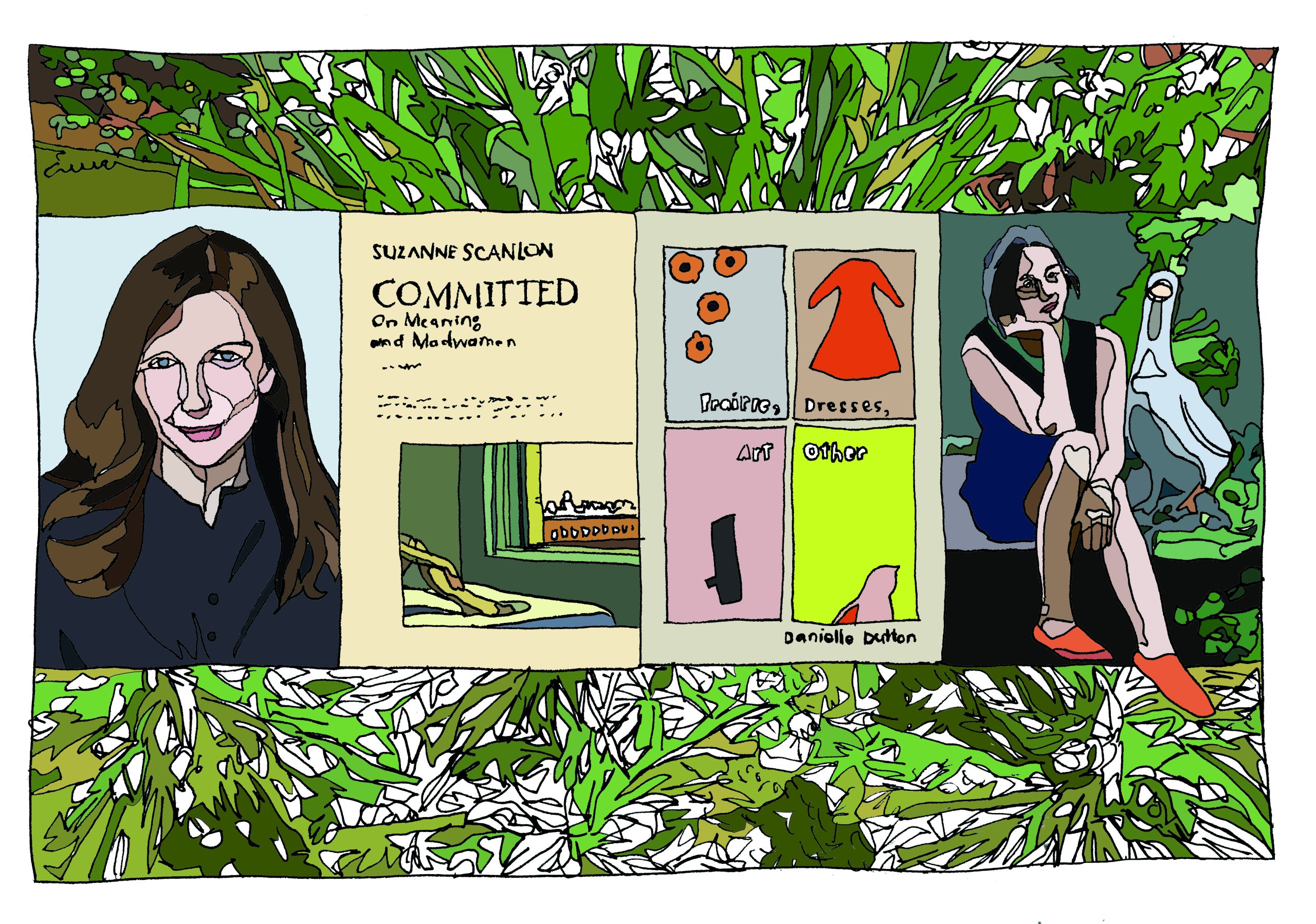Craft
It’s Okay If Writing Doesn’t Make You Happy
What does it meant to take joy in writing—and is that the best reason to write?

A friend recently told me they got no joy from writing. “So I stopped,” they said with no regret. My friend’s posture remained erect and their eyes laser-focused. But I’d found what they’d said upsetting. This person is a writer I greatly admire. Someone whose work I will tell anyone as indisputable fact is some of the best stuff I’ve read.
Their words hit me at my core, I think because I worried I’d see myself saying something similar down the line. My first instinct was to jump into hero mode: How could I fix this? How could I help my friend understand their talent enough to get back to producing? I realized that pushing back would be more for my benefit, an attempt to convince myself that it couldn’t happen to me. So I sat and listened. I didn’t insert my rebuttals. I wanted to understand where they were coming from.

I sat with my friend’s statement for weeks. Hell, I’m still sitting with it. When we’d met I had been avoiding my own writing due to personal circumstances. I found ways to procrastinate, be it under the guise of research or simply being stuck and not pushing myself any further. I considered whether the pull that compelled me to return to the page translated to me finding joy in writing via the dictionary definition? Was it really that simple for others to find pure satisfaction, gaiety, bliss from the act of writing?
Yes, my friend had told me: The children and teens they lead in writing workshops find writing joyful. There’s a carefree nature of the process for them where nothing outside of the work is of concern. My friend decreed that for them the writing life had become pretentious in a way — focused on the deals that were (or were not) made and for what amounts. The internet provides endless material we can measure ourselves against where we’d easily find ourselves wanting what we don’t have; and this professional jealousy appeared to dominate discussion over craft. My friend needed to regain that true joy the young people they taught had when writing about donuts or flatulent animals without concern for agents, publishing deals, sales, etc.
Was it really that simple for others to find pure satisfaction, gaiety, bliss from the act of writing?
Having worked with elementary school students months earlier, I remembered that kind of excitement. I remembered how overzealous they got as we began a group story, each student adding a new scenario until it became a dreamscape within a dreamscape where no one would ever die. Their smiles were genuine, their giggles infectious, their energy off-the-charts. You couldn’t tell these kids that they needed better structure. That they needed to make a more coherent plot to attract audiences. That their work simply wasn’t plausible. As we created an improvised story together, I pointed at one child, then another, all of them shouting over each other as the dragon ate the prince then took over the castle that ultimately was demolished by lava.
There’s something to behold in the beauty of storytelling in itself: An appreciation for the unfiltered ability to come to the page ready and willing to allow your characters, or your narrator, the space to take you where they need to go rather than attempt to construct it into something digestible, marketable, and/or accessible for a particular audience. Would my friend regain that joy? Did I have that kind of joy ? Or was “joy” a misnomer? I may be trying to mash the act and the word together into something incoherent—into what it’s not, at least for me. But I knew that to not write left me joyless. In fact, not writing tends to be debilitating for me.
So what does make me write? Stubbornness? Or, and this is also plausible, a deep-seated need to get these ideas out of my brain? Does joy work its way into any of those scenarios? There may be some key tenets to sticking with it—not simply the pleasure of imagination and creation, not only the pats on the back when it works out, if it does, or simply an appreciation for getting over another hurdle. Maybe joy, in a sense for those of us who live and breathe writing, who cannot imagine a life without words, ties to other factors that keep us coming back. The authors I admire rarely cite joy as the reason they write; instead, they talk about engagement, stubbornness, obsession, obligation. Could one, or all, of these factors be a replacement for the kind of uncomplicated joy in writing my elementary school students feel?
Maybe joy, in a sense for those of us who live and breathe writing, who cannot imagine a life without words, ties to other factors that keep us coming back.
Engagement
At a talk for her latest book, An American Marriage, Tayari Jones said that the right word for her when it came to writing was “engaged.” It’s not always a fun process, it is one she’s adamant about. Jones was specific in saying that it was enjoyable and, of course, difficult to figure it out. The “it” in this scenario being her process, characters, story arcs, what-have-you. Her current book that’s received much deserved praise was a struggle being one of the longest and hardest books for her to write.
Hearing her admit her own frustrations, I considered if a lack of “joy” translated to an inability to be engaged in the writing. An inability to stick with it without paranoia, concerns, the dreaded “imposter syndrome” kicking in or rather kicking the chair from under you.
Stubbornness
Junot Díaz wrote about how he became a writer through five years of failure for Oprah magazine online. He spoke to his stubbornness, a relentlessness to keep going, the accumulation of bad writing be damned. “Want to talk about stubborn? I kept at it for five straight years. Five damn years. Every day failing for five years? I’m a pretty stubborn, pretty hard-hearted character, but those five years of fail did a number on my psyche. On me.”
He attempted to find alternatives to writing becoming a “square,” as he called it, before going right back and salvaging some small bit from the debris he’d sought to forget. Chalk this up as persistence or insistence, but it circles back to stubbornness to that inherent need because to not create takes something away from who we are.
Am I Still a Real Writer If I Don’t Feel Compelled to Write?
Obsession
“Obsession can be a useful tool if it’s a positive obsession,” insisted Octavia Butler. She explained how the storytelling was instilled in her at such a young age she became obsessed. I don’t know that she found “joy” in the process. Like Díaz, Butler never said that blissful word nor spoke of a surge of happiness in the process itself. As it was for him it was for her: a need. Over time, Butler attained and quit jobs she hated while always writing, pushing through to learn as much as she could before publishing steadily. She and her mother were scammed by fake agents, rejection letters piled up and were tossed out by Butler, her writing was dismissed before it was heralded.
Butler didn’t deny the hardship of publishing or publishing science fiction as a woman of color. For her the pursuit was part of a fixation she refused to let go of. This “positive obsession,” as she dubs it in the essay of the same name, kept her focused, ready to push back against the sexism and racism of the genre, to create new expectations because what she was doing wasn’t able to be categorized. She kept at it because to obsess over what she felt she could do made her that much more determined to succeed.

Obligation
In one of her essays in Sister Outsider, Audre Lorde dissected the problems of silence politically, creatively, and inherently. “Tell them,” her daughter said to her, “about how you’re never really a whole person if you remain silent, because there’s always that one little piece of you that wants to be spoken out.” To ignore that piece of you, Lorde’s child went on to explain, meant it gets angrier forcing itself out of your mouth sooner or later. While Lorde’s “The Transformation of Silence into Language and Action” didn’t specifically speak to the writing process it tied into it due to what Lorde never denied about herself as a Black lesbian poet. Again, words like “joy” or “happiness” or “content” didn’t appear in this piece or any of the ones referenced. And perhaps they don’t have to. Maybe the insistence of the need for language, for connection, is enough.
As I sit with the idea of “joy,” I figure that for us creatives, it’s more layered than its dictionary definition implies. It could be that those elements of engagement, stubbornness, obsession, and obligation are part of the “joy.” If there’s no need, no burning from within to sit butts to chairs and function as creator, and speak out and obsess damn the consequences or the outcome, then that’s where all is lost. Writing will always be a struggle, it always has been. Jones, Díaz, Butler, and Lorde all struggled before becoming lauded and continued to struggle in their own ways thereafter.
Perhaps those elements of engagement, stubbornness, obsession, and obligation are part of the “joy.”
To tap into joy, whatever that means for you, makes it necessary to stop worrying about what others have and “focus on yourself,” as my grandmother said to me a lot as a child. Jones, Díaz, Butler, and Lorde do not speak of the business of writing. They home in on the craft of it, the action (or inaction) of it, the necessity of it to the core of who they are. That’s the place where joy lies, where some form of it has to be. These authors focused on their passion when internal and external forces — be it frustration at progress or a printed rejection or fear to speak — could’ve taken that joy and in some instances did.
The engaged, stubborn, obsessive, obligated nature of being a creator forces us to look at who we are and the world around us. Maybe that’s satisfactory enough to live with those words, produce them, and share them. I doubt I’ll achieve that ecstatic free-for-all high that my friend’s or my own young students get, that unadulterated appreciation for the silliness and limitless craft. But I may be finding that joy in a quieter, fiercer way that brings me back to the struggle of creation again and again and again. I don’t know if my friend will loop back to that passion and necessity they used to feel or if that’ll be enough to keep them going. But there was relief in knowing that my positive obsession wasn’t going to go away.








